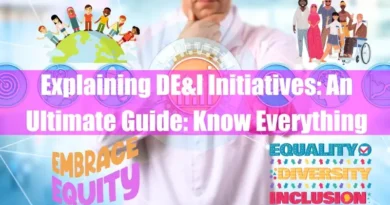Ethical Decision-making Training: An Ultimate Guide
Takeaways
| Key Points |
|---|
| Ethical decision-making training is essential for navigating the complexities of modern life, equipping individuals and organizations to handle challenging dilemmas with integrity. |
| This training fosters critical thinking and self-awareness by introducing ethical frameworks like utilitarianism, deontology, and virtue ethics, providing tools to evaluate situations from multiple perspectives. |
| It emphasizes aligning decisions with personal values while recognizing biases and addressing moral gray areas, such as balancing environmental protection with economic growth. |
| Effective programs are built on thorough needs assessments, engaging methods like case studies and role-playing, and a supportive ecosystem that ensures facilitators are skilled and content is relevant to real-world situations. |
| Advanced topics, including AI ethics, data privacy, whistleblower protections, and cultivating moral courage, prepare individuals to address emerging challenges with resilience and integrity, fostering a culture of trust and ethical responsibility. |
Introduction: Why Ethical Decision-making Training Matters
Imagine yourself stuck in a moral maze. Every path has consequences, with one aligning with your values but feeling risky and the other offering an easier escape but raising ethical concerns. This is a daily reality for many, impacting individuals, organizations, and society. Ethical decision-making training equips us with the tools to navigate these tricky situations.
Why is this training so crucial? Unethical behavior, like corporate scandals or data breaches, erodes trust, harms individuals, and hinders progress. Biased AI algorithms or social media privacy violations create a ripple effect with real and far-reaching consequences. On a personal level, unethical choices can damage relationships and leave you feeling terrible.
Ethical decision-making training empowers you to make informed and responsible choices, even in challenging situations.
It’s not about rigidity; it’s about fostering critical thinking, self-awareness, and a commitment to doing what’s right, even when difficult.
Foundations of Ethical Decision-making – Building Your Moral Compass

Think of it as building a sturdy compass to guide you in even the most stormy situations. So, let’s unpack the key components:
A. Navigating Ethical Frameworks:
Ethical frameworks offer various lenses through which to view your decisions. Here are the major players:
- Utilitarianism: Focuses on maximizing overall happiness or well-being, even if it involves sacrificing individual interests. Imagine weighing a policy’s impact on thousands against harm to a few.
- Deontology: Emphasizes duty and respect for individual rights, regardless of consequences. Consider situations where honesty may have negative consequences, but the principle remains important.
- Virtue Ethics: Centers for developing good character traits like honesty, courage, and compassion. It’s about becoming the kind of person who naturally makes ethical choices.
Understanding these frameworks helps you analyze dilemmas from different perspectives and make well-rounded decisions.
B. Legal and Regulatory Compass:
Knowing the law industry regulations and ethical codes specific to your profession is crucial. Think of doctors with their Hippocratic Oath or journalists bound by ethical codes of conduct. Staying informed keeps you on the right side of both legality and professional ethics.
C. Knowing Yourself: Values and Biases:
Examining your personal values helps you identify what truly matters to you. Are fairness, transparency, or environmental responsibility core to your beliefs? Aligning your decisions with your values leads to greater authenticity and satisfaction.
However, we all have unconscious biases that can influence our judgment. Be honest about your potential biases (e.g., affinity for certain groups) and actively seek diverse perspectives to mitigate their impact.
D. Recognizing Moral Gray Areas:
Not all situations offer clear-cut right or wrong answers. Recognizing “moral gray areas” is key. Consider a dilemma involving environmental protection versus job creation. Carefully weigh the potential harms and benefits to make an informed, responsible choice.
By building a strong foundation in these areas, you confidently equip yourself with the tools to navigate complex ethical dilemmas. This paves the way for designing an effective training program that builds upon these key pillars.
Building the Training Program – From Blueprint to Action
A. Needs Assessment: Where are we, and where do we want to go?
Before building, we need a solid foundation. Here’s where the needs assessment comes in:
- Target Audience: Who needs this training? Are we targeting executives, frontline employees, or specific departments? Understanding their unique roles and challenges is crucial.
- Current State: How are ethical decisions currently made within the organization? Are there established policies, reporting mechanisms, or training gaps?
- Learning Objectives and Goals: What specific skills and knowledge do we want participants to gain? Be clear, measurable, and action-oriented.
B. Training Development: Engaging Minds and Sparking Action
Now for the engaging part! Let’s explore training methods:
- Case Studies: Real-world scenarios spark discussion and allow participants to test their decision-making skills. Think about industry-specific dilemmas or historical examples.
- Simulations and Role-Playing: Stepping into different shoes fosters empathy and helps participants experience ethical challenges firsthand. Imagine role-playing a whistleblower situation or a tense negotiation.
- Interactive Activities: Games, quizzes, and group discussions keep participants engaged and actively apply their learning. Consider ethical dilemma polls or breakout sessions on specific challenges.
- Lectures and Discussions: Expert presentations provide foundational knowledge, while facilitated discussions encourage critical thinking and diverse perspectives.
C. Building an Ethical Ecosystem: Delivery and Beyond
The training itself is just the tip of the iceberg. Here’s what else matters:
- Facilitator Skills: Skilled facilitators create a safe, inclusive environment where participants feel comfortable discussing complex issues. Active listening, open-ended questions, and respect for diverse viewpoints are key.
- Real-world Relevance: Connect training concepts to participants’ daily situations. Use relevant case studies and examples from your organization or industry.
- Addressing Difficult Questions: Create an open space for discussion, anticipate challenging questions, and provide clear, honest answers based on ethical frameworks and relevant policies.
D. Measurement and Evaluation: Tracking Progress and Impact
Was the training effective? Measuring results is crucial for continuous improvement:
- Pre- and Post-training Assessments: Gauge changes in knowledge, attitudes, and self-reported behaviors related to ethical decision-making.
- Feedback Mechanisms: Collect participant feedback through surveys, focus groups, or anonymous reporting channels.
- Observing Behavior: Track changes in actual decision-making processes and reporting of ethical concerns within the organization.
By fostering a culture of continuous learning, open communication, and commitment to ethical principles, you empower individuals to make responsible choices, creating a more ethical and sustainable future for all.
Advanced Frontiers in Ethical Decision-making – Navigating the New Frontier
As technology evolves and the world gets more complex, ethical decision-making faces new challenges. Let’s explore some advanced topics to equip you for the journey ahead:
A. Emerging Technologies and Ethical Quandaries:
- Artificial Intelligence (AI): Algorithms with far-reaching consequences raise questions of bias, fairness, and accountability. Think about AI-powered hiring tools or facial recognition algorithms.
- Data Privacy and Cybersecurity: Balancing transparency with individual privacy becomes crucial in a data-driven world. Consider data breaches, targeted advertising, and online surveillance.
- Social Media and Online Ethics: Navigating misinformation, hate speech, and online anonymity presents unique ethical dilemmas. Imagine managing corporate social media accounts or dealing with online harassment.
Training programs must address these emerging challenges, equipping individuals to critically evaluate technology, protect data responsibly, and behave ethically online.
B. Managing Ethical Conflict and Whistleblower Protection:
- Speaking Up: It is crucial to foster a culture where employees feel empowered to raise concerns about unethical behavior. Encourage open communication and provide clear whistleblower protection mechanisms.
- Reporting Effectively: Train individuals on proper reporting procedures, evidence gathering, and navigating organizational hierarchies when voicing concerns.
- Addressing Retaliation: Protecting whistleblowers from reprisals is essential for maintaining trust and encouraging ethical behavior. Implement robust anti-retaliation policies and provide support systems for whistleblowers.
C. Building Resilience and Moral Courage:
- Standing Up for Your Values: Ethical choices can be difficult, especially when facing pressure or temptation. Training should cultivate the strength to act on your principles, even tough ones.
- Dealing with Stress and Moral Distress: Ethical dilemmas can be emotionally challenging. Training should equip individuals with coping mechanisms to manage stress and maintain moral resolve.
- Maintaining Integrity: Developing consistent ethical behavior requires ongoing commitment. Continuous learning, reflection, and seeking support from mentors or ethical communities can help individuals stay on track.
By addressing these advanced topics, training programs can help individuals navigate the complexities of the modern world with courage, integrity, and a commitment to ethical behavior.
Conclusion
Ethical decision-making is not a destination but an ongoing journey. This comprehensive training program equips you with the tools to navigate that journey confidently. Remember, knowledge is power, but action is impact. Put your newfound skills into practice, make responsible choices, and inspire others to do the same.
However, individual efforts alone are not enough. Leadership plays a crucial role in fostering a culture of ethics. Leaders must set clear expectations, communicate ethical values, and reward ethical behavior. By creating an environment where speaking up is encouraged, and ethical choices are prioritized, organizations can set a powerful example for the world.
Ultimately, the impact of ethical decision-making reaches far beyond individuals and organizations. By choosing right over wrong, we contribute to a more just, sustainable, and equitable world for all. So, embark on this ethical journey, share your learnings, and together, let’s create a future where ethical decisions are not just the right thing to do but the natural thing to do.
Remember, your choices matter. Use the knowledge and skills gained from this training program to make a positive difference, one ethical decision at a time.
FAQ
How can we ensure ethical training addresses diverse cultural perspectives and avoids cultural bias?
While drafting ethical training, consider tailoring it to specific cultural contexts. Recognize potential biases and equip participants with strategies for navigating ethical dilemmas in multicultural environments. Encourage discussions on culturally diverse perspectives and provide real-world examples that resonate with different cultural backgrounds. Remember, a one-size-fits-all approach won’t do in a globalized world.
How can emotional intelligence and empathy be incorporated into training to strengthen ethical decision-making?
Strengthening ethical decision-making through training can benefit greatly from incorporating emotional intelligence (EQ) and empathy. Here’s how:
- Self-awareness: Training can include activities that help individuals recognize their own emotions and how they influence their judgment. This can help them avoid impulsive decisions driven by anger or fear.
- Perspective-taking: Role-playing exercises and case studies can allow individuals to see situations from the viewpoints of others, fostering empathy and understanding of different experiences.
- Emotion regulation: Techniques for managing stress and emotions in charged situations can be taught, enabling individuals to approach ethical dilemmas calmly and thoughtfully.
- Active listening: Training can emphasize the importance of listening attentively to others’ concerns and perspectives, fostering an environment of open communication and understanding.
- Assertive communication: It is crucial to equip individuals with the skills to express their own ethical concerns confidently and respectfully, even when facing opposition.
By fostering these aspects of EQ and empathy, training programs can go beyond simply imparting knowledge and empower individuals to make ethical choices that are not only informed but also considerate and emotionally astute. This can lead to more impactful and sustainable ethical decision-making across various situations.
What strategies can sustain ethical practices beyond initial training and embed them in organizational culture?
There needs to be more than just building on the initial training. Embedding ethical behavior in your organization requires ongoing efforts. First, integrate ethics into daily practices. Embed ethical considerations into performance reviews, decision-making processes, and reward systems. Recognize and reward those who demonstrate ethical behavior and encourage reporting concerns.
Second, keep the learning journey alive. Offer regular refresher training, pair new employees with ethical mentors, and create knowledge-sharing platforms. This ensures that everyone stays equipped to navigate ethical dilemmas.
Finally, foster a supportive environment. Encourage open communication where concerns are heard without fear of retaliation. Implement strong whistleblower protection policies. Importantly, leaders must champion ethical behavior by setting an example and holding themselves accountable.
By weaving these strategies into your culture, ethical decision-making becomes second nature, leading to a more sustainable and responsible organization.
How can we measure the positive impact of ethical training on stakeholders beyond individuals, such as communities and the environment?
Understanding the positive impact of ethical training goes beyond individual behavior. Here’s how to measure its effect on communities and the environment:
Community Impact: Gauge how the community perceives the organization’s ethical behavior. Conduct surveys before and after training, tracking trust, satisfaction, and perceived commitment to community engagement changes. Analyze partnerships with local organizations – did training lead to more impactful collaborations? Track employee volunteerism and community investment programs to assess increased engagement.
Environmental Impact: Monitor key environmental indicators like resource consumption, waste generation, and pollution levels. Did training translate to more sustainable practices? Track compliance with environmental regulations and industry standards to see if violations decreased. Conduct environmental impact assessments to analyze the direct and indirect positive environmental changes after training.
Remember, attributing positive changes solely to ethical training is complex. However, a comprehensive approach involving surveys, partnership analysis, environmental metrics, and qualitative data like focus groups can build a strong case for its impact. By involving stakeholders from communities and environmental groups in the assessment, you ensure their perspectives are heard and represented. This holistic approach reveals the true value of ethical training, showcasing its positive impact on a broader scale.
What is ‘Moral Blindness’ in ethical decision-making training?
Moral blindness, also known as ethical blindness, refers to an individual’s temporary inability to recognize the ethical dimensions of a decision. This phenomenon often arises due to external factors that obscure one’s moral judgment, leading to actions that contradict one’s ethical standards. Understanding moral blindness is crucial in ethical decision-making training, highlighting the importance of awareness and vigilance in maintaining ethical conduct.
How does ‘Principlism’ guide ethical decision-making?
Principlism is an approach in applied ethics that emphasizes applying four primary ethical principles—autonomy, beneficence, non-maleficence, and justice—to resolve moral dilemmas. This framework allows individuals to navigate complex ethical issues by balancing these principles, providing a structured method for ethical decision-making without delving into theoretical debates.
Can you explain the ‘Potter Box’ model in ethical decision-making?
The Potter Box is a model Ralph B. Potter, Jr. developed to facilitate systematic ethical decision-making. It involves four steps:
- Definition/Facts: Gathering all relevant information without bias.
- Values: Identifying and comparing the merits of different values influencing the decision.
- Principles: Applying ethical philosophies or modes of reasoning to the situation.
- Loyalties: Considering to whom or what the decision-maker has allegiances.
Individuals can make more informed and ethically sound decisions by systematically working through these steps.
What is ‘Moral Disengagement’ and its role in ethical decision-making?
Moral disengagement refers to the cognitive process where individuals convince themselves that ethical standards do not apply to them in specific contexts, thereby justifying unethical behavior. This self-persuasion can lead to actions that contradict one’s moral beliefs without self-condemnation. Recognizing and addressing moral disengagement is vital in ethical decision-making training to prevent rationalizing unethical conduct.
How does the ‘Belmont Report’ influence ethical decision-making in research?
The Belmont Report outlines fundamental ethical principles and guidelines for conducting research involving human subjects. It emphasizes three core principles:
- Respect for Persons: Acknowledging individual autonomy and providing additional protections for those with diminished autonomy.
- Beneficence: Maximizing potential benefits while minimizing possible harms.
- Justice: Ensuring a fair distribution of the benefits and burdens of research.
These principles serve as a foundation for ethical decision-making in research settings, guiding the ethical conduct of studies involving human participants.
What is ‘Ethical Fading’ in the context of decision-making?
Ethical fading occurs when individuals focus on other aspects of a decision to the extent that the ethical dimensions become obscured or fade from consideration. This can lead to unconsciously making unethical choices, as the moral implications are overlooked. Recognizing ethical fading is crucial in maintaining ethical awareness during decision-making processes.
How does ‘Framing’ affect ethical decisions?
Framing refers to how people’s responses to ethical issues are influenced by the way these issues are presented or perceived. The context or “frame” through which a problem is viewed can significantly impact individuals’ ethical judgments and decisions. Understanding framing effects is essential to mitigate biases in ethical decision-making.
What is the ‘Fundamental Attribution Error’ in ethical contexts?
The Fundamental Attribution Error is the tendency to attribute others’ actions to their character or disposition while overlooking situational factors that might have influenced their behavior. In ethical decision-making, this bias can lead to unfair judgments about others’ actions without considering external circumstances. Being aware of this error promotes more empathetic and accurate ethical evaluations.
Can you define ‘Groupthink’ and its impact on ethical decisions?
Groupthink occurs when the desire for harmony or conformity within a group leads to irrational or dysfunctional decision-making outcomes. Members may suppress dissenting opinions, leading to a loss of individual creativity and independent thinking. This phenomenon can result in unethical decisions, as critical evaluation is sacrificed for the sake of consensus.
What is ‘Implicit Bias’ and its relevance to ethical decision-making?
Implicit bias refers to the unconscious attitudes or stereotypes that affect our understanding, actions, and decisions. These biases can influence ethical decision-making, leading to unintended discrimination or unfair treatment. Recognizing and addressing implicit biases are essential steps toward more equitable and ethical practices.
How does ‘Incrementalism’ relate to ethical decision-making?
Incrementalism, often referred to as the “slippery slope,” describes how minor unethical decisions can lead to larger unethical actions over time. This gradual erosion of ethical standards emphasizes the importance of vigilance in upholding ethical principles, even in seemingly trivial matters.
What is a ‘Fiduciary Duty’ in ethical terms?
A fiduciary duty is a legal obligation to act in the best interest of another party rather than oneself. This duty is paramount in professions like law and finance, where trust and loyalty are essential. Upholding fiduciary duties ensures that professionals make decisions that prioritize their clients’ or beneficiaries’ interests, maintaining ethical integrity.
How does ‘Ethical Risk’ influence decision-making in technology projects?
Ethical risk pertains to the potential of actions leading to harm, wrongdoing, or failure to uphold moral values within technological initiatives. In tech projects, such risks can manifest through unintended consequences like privacy breaches, biased algorithms, or environmental harm due to inefficient designs. Recognizing and mitigating ethical risks necessitates comprehensive ethical reasoning, ensuring that technological advancements align with societal values and do not inadvertently cause harm.
What are ‘Emerging Technologies’ and their ethical implications?
Emerging technologies refer to recent innovations with transformative potential, such as artificial intelligence, big data, quantum computing, and gene editing. While these technologies offer significant benefits, they also raise ethical concerns, including autonomy, moral agency, and privacy issues. Addressing these ethical implications requires proactive engagement and ethical reasoning to ensure that technological progress does not compromise fundamental human values.
How does ‘Ethical Awareness’ contribute to ethical decision-making in the tech industry?
Ethical awareness involves recognizing the ethical aspects of decisions and actions, particularly in the tech industry. It serves as the foundation for ethical decision-making, enabling professionals to identify potential ethical challenges and address them proactively. Developing ethical awareness is crucial for navigating complex ethical landscapes ensuring that technological advancements are implemented responsibly and in alignment with societal values.









